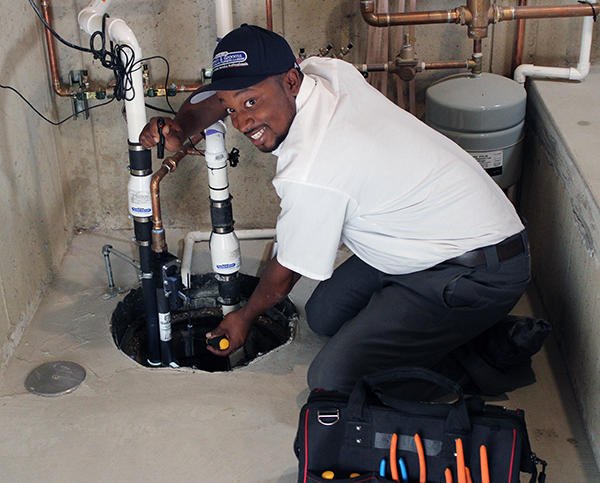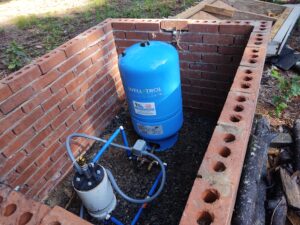Positive Water Treatment Procedures: Purchasing Long-Term Water High Quality
Positive Water Treatment Procedures: Purchasing Long-Term Water High Quality
Blog Article
Understanding the Secret Parts of Effective Water Purification Equipments

Importance of Water Filtering Systems
Water purification systems play a crucial duty in ensuring access to clean and secure alcohol consumption water by properly eliminating contaminants and pollutants. These systems are essential in addressing the growing concerns over water top quality and the prospective health risks related to eating infected water. By utilizing different filtering mechanisms such as reverse osmosis, triggered carbon, and UV sanitation, water filtering systems can successfully eliminate hazardous substances like bacteria, viruses, hefty metals, and chemicals from the water supply.
Moreover, water filtering systems assist to enhance the taste and smell of water by removing chlorine, sediments, and other pollutants that can influence its top quality. Water Softeners. This enhancement in water top quality not just makes it much more tasty yet additionally motivates people to consume alcohol an ample amount of water daily, advertising better hydration and general health and wellness
Sorts Of Filtering Components

Physical filters are developed to physically strain out pollutants from the water. These filters can be constructed from materials like ceramic, carbon, and even sand, and they function by capturing bits larger than the filter's pores as water travels through.
Chemical filters use numerous chemical procedures to get rid of pollutants from the water. Examples include turned on carbon filters, which adsorb impurities, and reverse osmosis membranes, which utilize stress to separate pollutants from the water.
Biological filters utilize living organisms like germs or algae to break down raw material and toxins in the water. These filters are often used in wastewater treatment plants or all-natural water purification systems.
Recognizing the different kinds of filtering parts is vital for choosing one of the most suitable water filtering system for specific purification demands.
Feature of Sediment Filters
Debris filters play a crucial role in water purification systems by properly recording solid fragments suspended in the water. These filters are normally the very first line of protection in a filtering system, eliminating bigger fragments such as sand, silt, dirt, and rust prior to the water relocates through finer filtering phases. By capturing these debris, the filters prevent them from reaching downstream parts, therefore extending the lifespan and efficiency of the whole system.
The feature of debris filters is vital in maintaining water quality and protecting sensitive tools from damages triggered by debris. Additionally, by eliminating visible fragments, debris filters enhance the clarity and preference of the water. On a regular basis replacing or cleaning This Site up sediment filters is important to make certain ideal efficiency. Overlooking this upkeep can result in blocking, reduced water flow, and endangered purification performance. Overall, sediment filters are vital components that add dramatically to the effectiveness of water purification systems.
Duty of Triggered Carbon Filters
Playing an essential role in water filtering systems, activated carbon filters are critical in removing pollutants and pollutants from the water supply. As Visit Website water passes through the filter, the activated carbon holds and brings in onto the impurities, guaranteeing that the water that comes out on the other side is cleaner and safer for intake.
Turned on carbon filters are highly effective at improving the preference and smell of water by reducing chemicals that can impact its top quality. Due to their flexibility and dependability, activated carbon filters are a vital element in making certain that water is cleansed to the highest possible standards before reaching consumers.
Understanding Reverse Osmosis Systems
Reverse osmosis systems are advanced water purification systems that employ a sophisticated procedure to eliminate pollutants and impurities from alcohol consumption water. These systems work by using stress to the water, requiring it with a semi-permeable membrane. This membrane acts as a barrier, allowing only pure water molecules to go through, while obstructing bigger particles such as minerals, chemicals, and other pollutants. Consequently, the water that appears check here on the other side is substantially cleaner and safer for usage.
One key advantage of reverse osmosis systems is their capability to eliminate a wide variety of contaminants, consisting of hefty metals, dissolved germs, viruses, and solids. This makes them very efficient in improving the general quality and safety and security of drinking water. In addition, reverse osmosis systems are fairly low-maintenance and can be installed under the sink or in a main filtration system, giving practical accessibility to tidy water throughout the family. On the whole, recognizing exactly how reverse osmosis systems work can assist individuals make notified decisions regarding their water filtering needs.
Final Thought
In conclusion, efficient water filtration systems are essential for ensuring tidy and secure drinking water. By recognizing the feature and duty of each part, people can make educated choices when choosing a water filtering system.
Water filtration systems play an essential duty in guaranteeing accessibility to clean and secure alcohol consumption water by efficiently getting rid of contaminants and pollutants. By making use of various filtering devices such as reverse osmosis, activated carbon, and UV sanitation, water purification systems can efficiently remove hazardous materials like bacteria, viruses, hefty steels, and chemicals from the water supply.
Debris filters play an important duty in water filtration systems by efficiently recording strong particles suspended in the water (Water Softeners).Playing a crucial role in water filtering systems, turned on carbon filters are instrumental in eliminating contaminations and contaminants from the water supply.Reverse osmosis systems are advanced water purification systems that use a sophisticated process to remove impurities and impurities from drinking water
Report this page